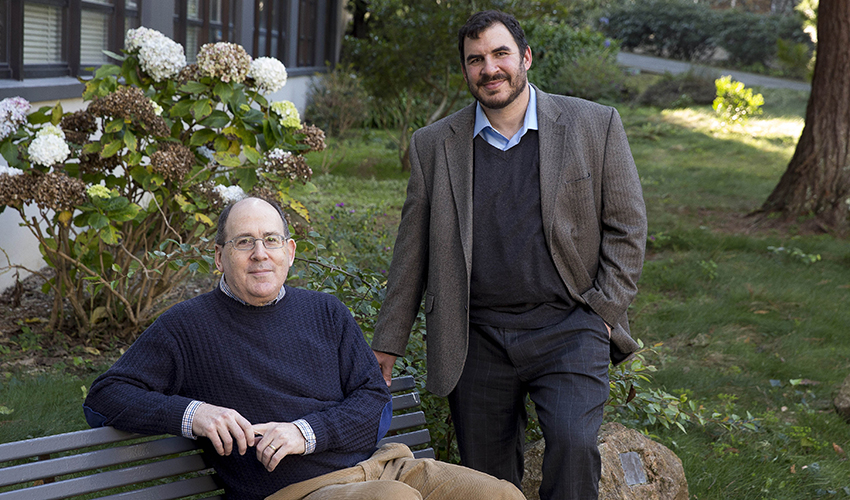History program gets $250,000 gift, envisions bright new future

Donation will fund effort to transform introductory courses
According to the American Historical Association, between 2008 and 2017 the number of U.S. college students pursuing history degrees dropped by nearly a third. But San Francisco State University History Department faculty members Trevor Getz and Steve Harris aren’t worried that the history major will soon be history itself. Instead, the duo is working to re-energize their field by transforming how students are introduced to it.
The History for the 21st Century project, co-created by Getz and Harris, is designed to make introductory history courses more relevant, meaningful and accessible. Funded by a $250,000 gift from the Agentives Fund, a private foundation with a focus on innovation in history research and education, the initiative (also known as H/21) will support collaborations and resource sharing with history educators around the world. The first item on the H/21 agenda, according to Getz: ensuring that students understand that the study of history is much more than memorizing names and dates.
“By and large, first-year courses are built around content acquisition and gaining knowledge,” said Getz, who chairs San Francisco State’s Department of History. “But they should also be helping students gain skills and competencies to deal with information, to work with and question narratives and gain a sense of civic responsibilities.”
As Harris sees it, history programs have remained stuck in the past. So, in 2021, the duo plan to launch an online platform through H/21 that will provide innovative teaching materials cost-free while giving history professors around the world a forum for sharing ideas and gathering feedback.
Getz envisions the web hub as a way to crowdsource great curriculum ideas, with thousands of history experts invited to contribute. Course materials on the site will be carefully peer-reviewed and edited, giving professors the ability to sift through quality lecture notes, historical evidence, assessments, class activities, PowerPoint presentations and other resources. Site users could then group the material they want into class lessons and full course packages that they can also share on the website.
Harris says a lot of history programs haven’t been reconfigured, and lack a focus on historical information from the past 50 years.
“This platform will help professors incorporate more contemporary content, and enable students to think critically and develop a personal connection to the curriculum,” said Harris. “We’d like students to be able to read a primary source critically. That’s a big deal right now with the talk of ‘fake news.’ How do you tell what’s real and how do you read something and interpret what it’s saying and not just take it at face value?”
“It’s going to be massively collaborative, and it is putting SF State at the center of reimagining the general first-year history course on a national and international scale,” Getz added. “We really feel like we have a responsibility to students to be at the nexus of this effort.”
And that nexus won’t just be online: It will involve face-to-face collaborations, as well. In August, for instance, dozens of scholars will gather on the SF State campus for a two-day H/21 conference. Presentations and panels will explore the creation of more engaging intro history courses and other ways to keep the field fresh and relevant.
“How do we engage students, most of whom aren't history majors, in a meaningful and personal way?” Harris said. “That is the crux of the conversation we will have.”